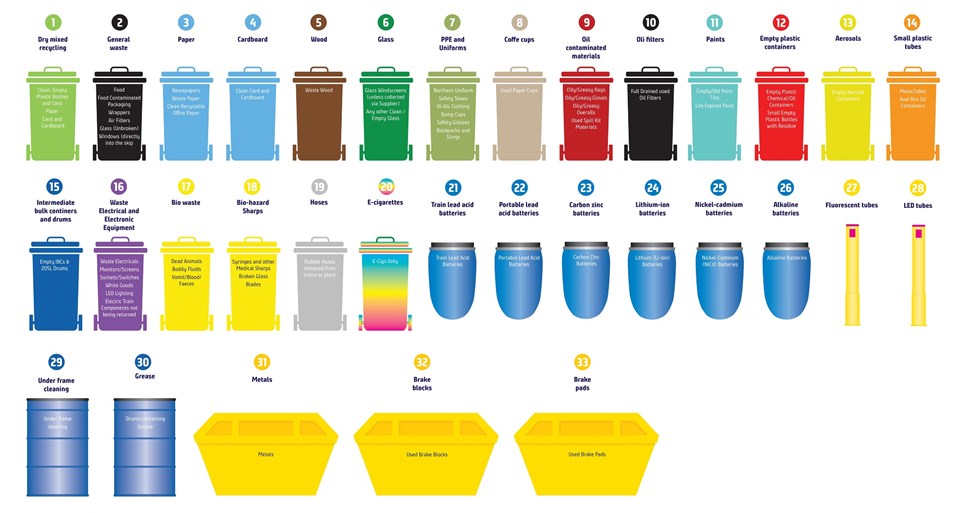
‘Wheelie’ serious about recycling: Northern now segregating waste into 33 different categories as part of 2024 environmental mission
Northern is now segregating waste products across its operations into 33 different specialist categories.
The train operator - which manages 467 of the stations on its network, has five ‘TrainCare Centre’ depots across the region and has support staff in multiple office locations across the North of England – already re-uses or re-cycles 70% of all waste generated by its operations.
The 33 different categories are:
| 1. Dry mixed recycling | 12. Oil contaminated materials | 23. Fluorescent tubes |
| 2. General waste | 13. Oil filters | 24. Bio waste |
| 3. Paper | 14. Paints | 25. Bio-hazard sharps |
| 4. Cardboard | 15. Empty plastic containers | 26. Hoses |
| 5. Wood | 16. Aerosols | 27. E-cigarettes |
| 6. Glass | 17. Small plastic tubes | 28. Train lead acid batteries |
| 7. Metals | 18. Under frame cleaning drums | 29. Portable lead acid batteries |
| 8. Brake blocks | 19. Intermediate bulk containers and drums | 30. Carbon zinc batteries |
| 9. Brake pads | 20. Grease | 31. Lithium-ion batteries |
| 10. PPE and uniforms | 21. Waste electrical and electronic equipment | 32. Nickel-cadmium batteries |
| 11. Coffee cups | 22. LED tubes | 33. Alkaline batteries |
Mike Roe, safety and environment director at Northern, said: “Eliminating waste is always our primary objective – but when that’s not possible, we aim to re-use or recycle as much as we can.
“The 33 different recycling strands now in-use throughout our business allows everyone across our near 7,000-strong workforce to play their part in support of our environmental mission.”
In 2022-23, Northern processed 6,458 tonnes of waste. Of that, 2,670 tonnes were recycled, 1,996 tonnes were re-used, 1,660 tonnes were incinerated (generating energy from waste) and just 132 tonnes went to landfill.
Northern is the second largest train operator in the UK, with 2,500 services a day to more than 500 stations across the North of England.
